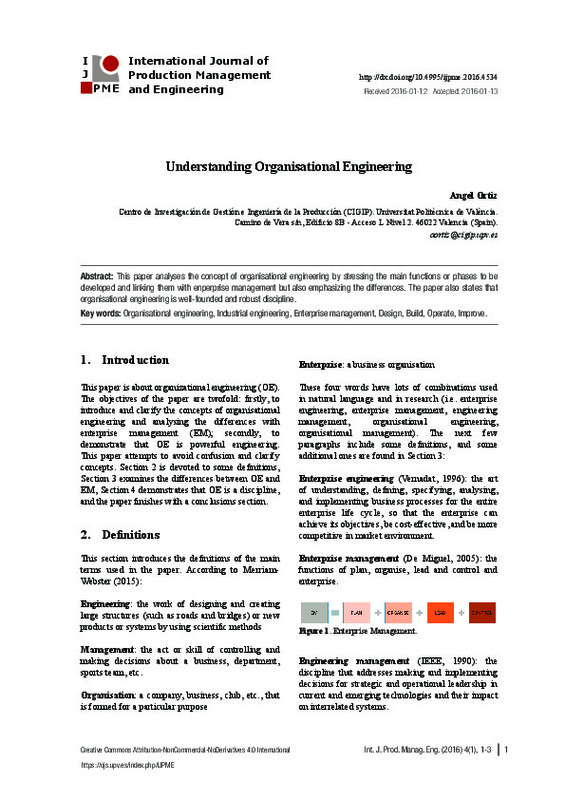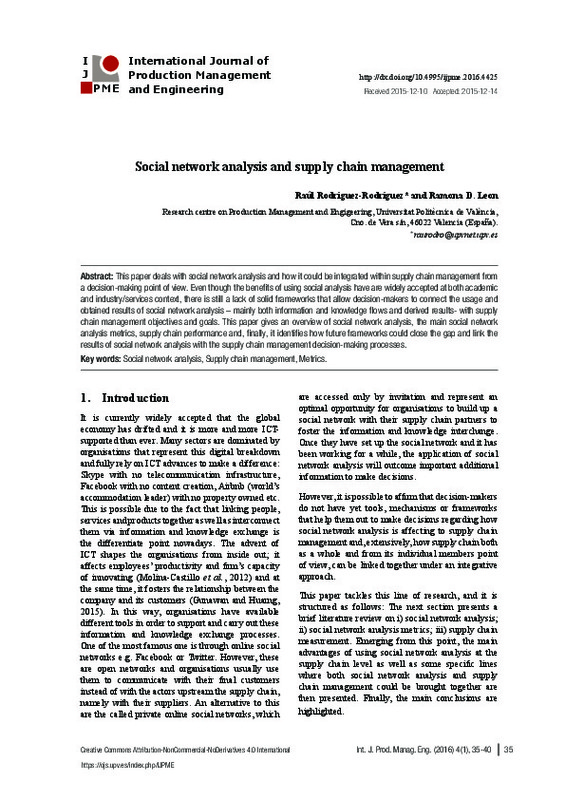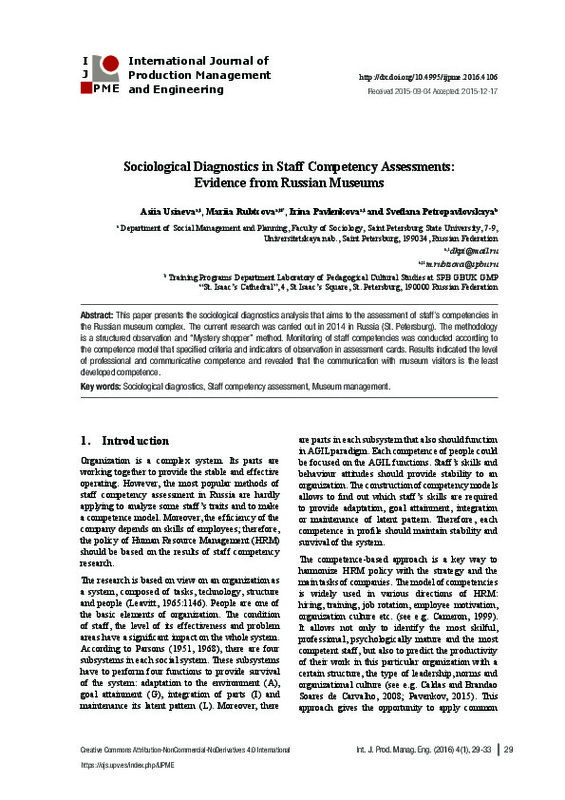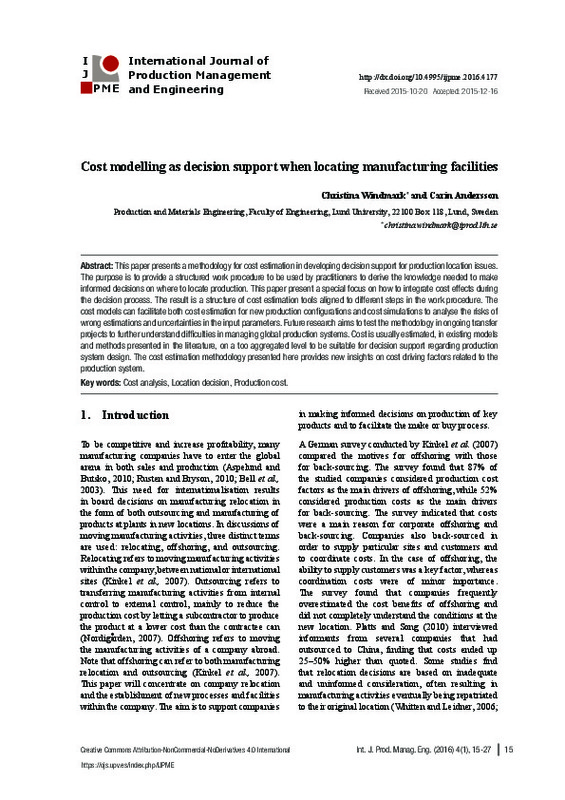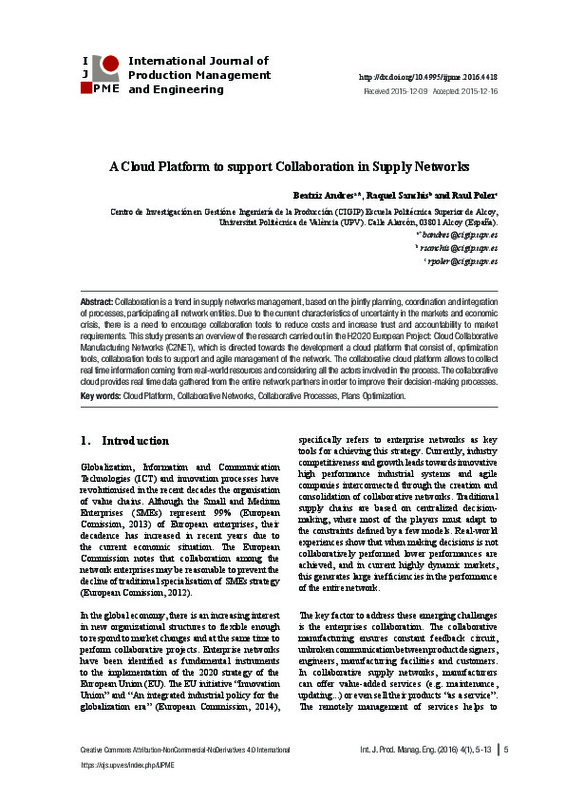- RiuNet repositorio UPV
- :
- Investigación
- :
- Material investigación. Editorial UPV
- :
- Revistas UPV. Editorial UPV
- :
- International Journal of Production Management and Engineering
- :
- International Journal of Production Management and Engineering - Vol 04, No 1 (2016)
JavaScript is disabled for your browser. Some features of this site may not work without it.
Refinar
Desde el lunes 3 y hasta el jueves 20 de marzo, RiuNet funcionará en modo de solo lectura a causa de su actualización a una nueva versión.
International Journal of Production Management and Engineering - Vol 04, No 1 (2016)
Tabla de contenidos
Editorial
- Understanding Organisational Engineering.
Papers
- A Cloud Platform to support Collaboration in Supply Networks
- Cost modelling as decision support when locating manufacturing facilities
- Methods of sociological diagnostics in the assessment of staff's competencies: a case of a state museum (St. Petersburg, Russia)
- Social network analysis and supply chain management



